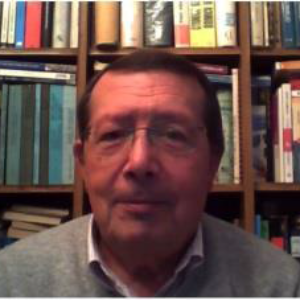Title : Omics methodologies for the study of pollution action on aging and Alzheimer
Abstract:
Neurodegenerative diseases associated to aging are one of the most important social, human, family and economic problems of this century, whose etiology, pathology, early symptoms and evolution are not well known. Therefore, the development and application of new methodologies are necessary in order to be able to address the challenge of brain and the central nervous system knowledge.
Long-term exposure to air pollution, noise, and the lack of green spaces has been associated with premature mortality and other detrimental health effects, including premature aging, mental health and neurodegenerative diseases, particularly Alzheimer's disease [Nieuwenhuijsen et al, 2016]. But especially alarming is the evidence that prenatal and postnatal exposure to environmental factors predisposes to the onset of neurodegenerative diseases in adulthood. Neurotoxic metals such as lead, mercury, aluminum, cadmium, and arsenic, as well as some pesticides and metal nanoparticles, have been implicated in AD due to their ability to increase beta-amyloid peptide (Aβ) and phosphorylation of Tau protein (P-Tau), causing the senile / amyloid plaques and neurofibrillary tangles (NFT) characteristic of AD [Quintanilla-Vega et al, 2015].
Considering the metabolic mechanisms involved in the onset and prognosis of neurodegenerative processes induced by our environment. Suitable methodological tools are required for their study. From analytical point of view we can mention the following [Gómez-Ariza et al, 2021]: 1.- Analysis of traces and ultra-traces of metals and metalloids, of an essential nature (Ca, P, S, K, Na, Cl, Mg, Fe, Zn, Mn, Cu, I, Cr, Mo, Se, Co), toxic (Cd, Pb, Al), or neurotoxic (Hg, As), in tissues and biological fluids; 2.- Analysis of traces of chemical species of toxic or essential elements (Speciation): As, Hg, Se; 3.- Methodologies for the identification and analysis of metallo-biomolecules, especially metallo-metabolites and metallo-proteins (Metallomics); 4.- Methodologies for the massive characterization of metabolites altered by pathological processes (Metabolomics).
What will audience learn from your presentation?
- Emphasize the importance of the combined use of massive information analytics techniques in the study of such complex problems, such as the influence of our environment and exogenous factors on aging and the onset of Alzheimer's disease.
- The possibility of having methodological tools that allow us to establish possible markers of the aging and neurodegeneration processes, under the influence of the environment, the surroundings and life habits.
- The need to address these studies from a multidisciplinary perspective


